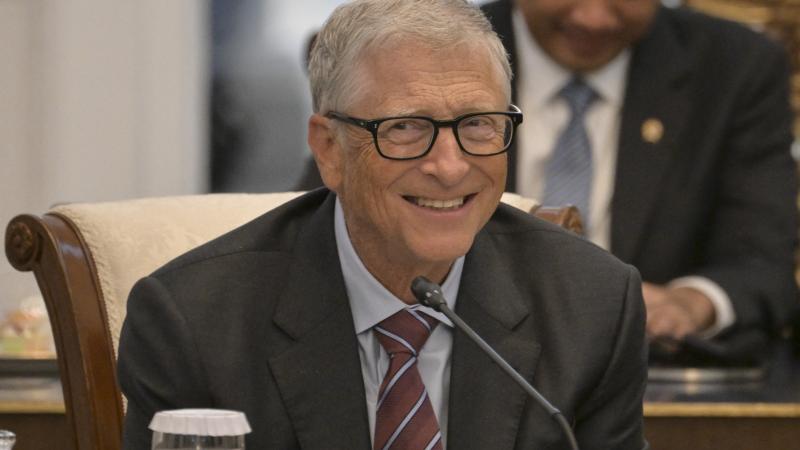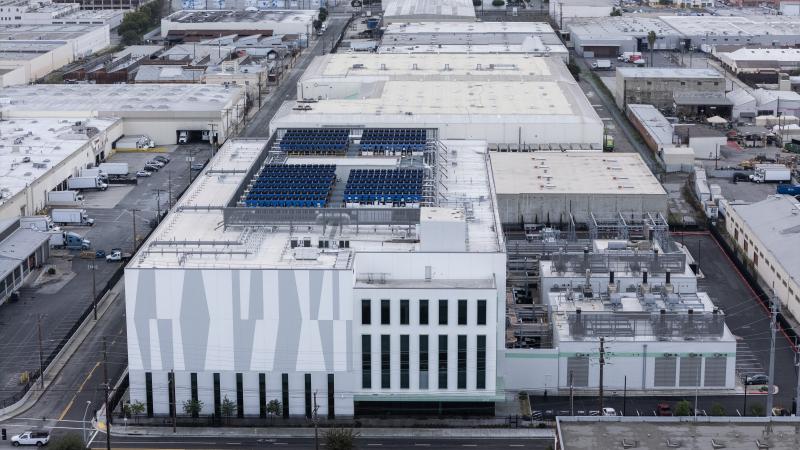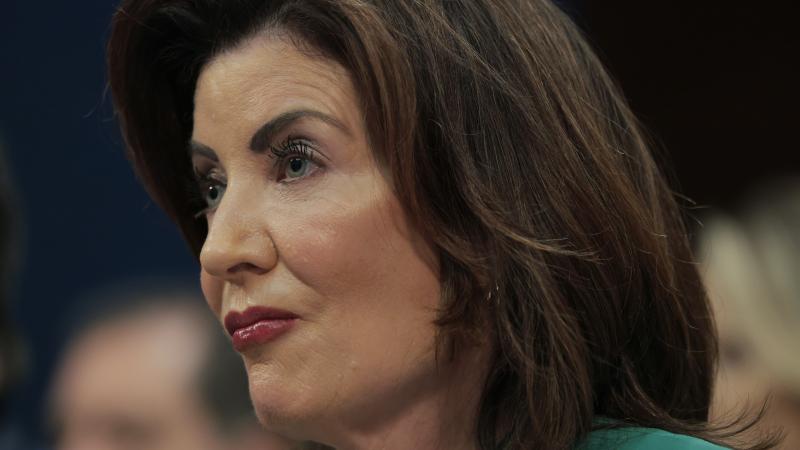Biden turns to adversaries instead of U.S. oil producers to replace Russian energy
Senior officials pushing green agenda as gas prices skyrocket amid Russia's war in Ukraine.
After announcing a ban on American imports of Russian energy, President Biden's decision to turn to Venezuela, Saudi Arabia, and even Iran as potential substitutes to fill the void in the global marketplace has raised a question within the U.S. oil and gas industry: Why not look to domestic producers first?
"You have two options," said Tim Stewart, president of the U.S. Oil and Gas Association. "One, you import from the Iranians and the Venezuelans, two terrorism-sponsoring states. Or you open up the U.S. domestic production. And for whatever reason, the [Biden] administration seems to think that the Iranian and Venezuelan option is better than the Texas, Oklahoma, Wyoming, North Dakota, and New Mexico option."
American officials went to Venezuela, a Russian ally and longtime U.S. foe, last week to open a dialogue with President Nicolas Maduro about easing sanctions so the country can sell its oil on the international market to combat rising prices amid Russia's war in Ukraine.
The Biden administration has had similar discussions with the Iranians. White House Press Secretary Jen Psaki said Monday the "discussion of oil" was part of negotiations to revive the nuclear deal with Iran, and senior officials haven't ruled out purchasing Iranian oil when asked.
Biden's team is also considering traveling to Saudi Arabia in an effort to get Riyadh to pump more oil. However, the Saudis' excess production is limited, and they're not going to open the spigots just for the Biden administration while they use high energy prices to recover from their 2020 oil price war, according to Stewart.
Analysts have also noted U.S.-Saudi relations are poor, with Biden publicly criticizing the kingdom and pursuing a nuclear deal with its chief rival, Iran.
Stewart told the John Solomon Reports podcast that Canada isn't an option for the U.S. given Biden canceled the Keystone XL pipeline as one of his first acts as president.
The Keystone pipeline would've had a capacity to transport some 830,000 barrels of crude oil per day from Canada to facilities in the U.S. — more than America gets from either Russia or Saudi Arabia. Last year, the U.S. imported about 672,000 barrels a day of crude and petroleum products from Russia, according to the Energy Information Administration.
"We don't have a strategic interest in reducing the global supply of energy, and that would raise prices at the gas pump for the American people around the world because it would reduce the supply available," Psaki said last week.
But canceling the Keystone pipeline reduced supply, experts noted.
"In an ideal world, we didn't need Keystone XL," wrote Robert Rapier, a chemical engineer with decades of experience in the energy industry. "In the real world — without all of the delays that have gone on for years — it could have been completed by now (or at least close to it). It could have been displacing oil from places like Russia."
Of course, the Keystone pipeline isn't in the cards now. But Biden announced Tuesday the U.S. is banning Russian oil and gas imports in response to Russia's invasion of Ukraine, leaving a void in the global energy market as prices continue to rise and Americans pay more at the pump for gas and diesel.
According to some observers, Biden missed an opportunity to reach out to the U.S. oil and gas industry to boost production by instead pursuing talks with Iran, Venezuela, and Saudi Arabia.
"I think one of the first things the Biden administration should have done is convene a high-profile summit of U.S. oil producers," said Rapier. "Invite the CEOs of ExxonMobil, Chevron, ConocoPhillips, EOG Resources — all of the major players to the White House. Ask them what needs to be done to get U.S. oil production back to pre-pandemic levels."
U.S. oil production is currently about one million barrels per day below where it was before the pandemic.
"So, before making concessions to Venezuela or Saudi Arabia, isn't it worth gaining a better understanding of what could be done in the U.S. to boost production?" wrote Rapier.
According to Biden, however, his administration is doing plenty and getting a bad rap.
"It's simply not true that my administration or policies are holding back domestic energy production," he said Tuesday, alluding to the Energy Information Administration's forecast that U.S. crude oil production will reach record levels next year.
Biden also said the oil and gas industry has 9,000 approved permits to "drill now" onshore on federal land. This point has been repeated by the White House but refuted by the American Petroleum Institute for "misusing facts" and being a "smokescreen" that's hamstrung domestic energy production.
Even while defending his record on oil and gas production, however, Biden used his speech Tuesday to plug his green agenda, one of many indications that his larger goal is to leave the fossil fuel industry behind.
"Loosening environmental regulations or pulling back clean energy investment won't lower energy prices for families," he said. "But transforming our economy to run on electric vehicles powered by clean energy with tax credits ... that will help. And if we do what we can, it will mean that no one has to worry about the price at the gas pump in the future."
Biden's remarks came one day after Vice President Kamala Harris and Transportation Secretary Pete Buttigieg similarly pushed a transition to green energy and electric vehicles amid high gas prices.
"We are all in the midst of a turning point," Harris said at an "Accelerating Clean Transportation" event at the White House-adjacent Eisenhower Executive Office Building. "We have the technologies to transition to a zero-emission fleet. We can address the climate crisis and grow our economy at the same time."
"Clean transportation can bring significant cost savings for the American people as well," Buttigieg added at the same event. "Last month, we announced a $5 billion investment to build out a nationwide electric vehicle charging network so the people from rural to suburban to urban communities can all benefit from the gas savings of driving an EV."
Buttigieg didn't note that, according to Kelley Blue Book, the average transaction price for an electric vehicle (EV) is $56,437, about $10,000 higher than the overall industry average for a vehicle.
Republican lawmakers slammed Harris and Buttigieg for being "tone deaf," arguing they don't recognize the immediate pain facing the American consumer amid inflation and high gas prices.
Last week, Buttigieg also came under fire when he said "all options are on the table" after being asked if the U.S. would consider activating the Keystone pipeline or working out an energy deal with Iran. The transportation secretary added that we "need to make sure we're not galloping after permanent solutions to immediate short-term problems."
Critics took the comments to suggest that countering the current oil price hike and the influence of Russian energy is a short-term problem that shouldn't be solved by taking steps that are too extensive now, such as ramping up domestic energy production.
Harris and Buttigieg aren't the only officials who've suggested the U.S. should prioritize transitioning away from fossil fuels.
President Biden's special envoy for climate issues, John Kerry, recently warned that Russia's war in Ukraine will produce "massive emissions" and distract the world from "what we need to do for the climate."















